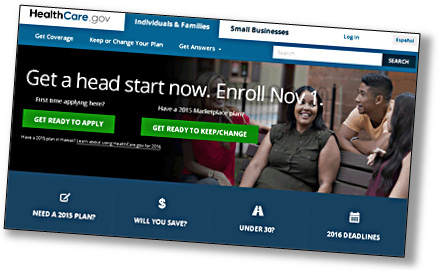Here is Sarah Ferris writing in The Hill today:
ObamaCare will force a reduction in American work hours — the equivalent of 2 million jobs over the next decade, Congress’s nonpartisan scorekeeper said Monday.
That’s an unfortunate choice of words, especially since three paragraphs later Ferris herself says it’s not true: “The CBO is not predicting that employers will fire millions of workers or reduce hours because of the law, but that the law changes incentives over the years  for the workers themselves both in part-time and full-time positions.”
for the workers themselves both in part-time and full-time positions.”
Obamacare isn’t forcing anyone to do anything. According to the CBO it has three general effects:
- It includes some tax increases, which modestly reduce incentives to earn more income.
- It allows more people to buy health insurance even if they aren’t employed, which modestly reduces incentives to work.
- Its benefits decline as income goes up, which reduces incentives to work (in some cases) or to work more (in other cases).
CBO’s specific estimates of reduced work incentives may be wrong—they strike me as a bit high— but their general conclusion is both correct and well-known. Tax increases do reduce incentives to work. Decoupling insurance from employment does reduce the number of people who work solely because they need the insurance. And means-tested benefits do create the equivalent of high marginal tax rates as income increases, which reduces the incentive to work more.
There’s nothing new here. Obamacare does change work incentives in certain ways, though the effect is small: about 1-2 percent of the workforce by 2025. But it doesn’t force anything. There are no “broken promises” or “catastrophic failures” to rant about. Just some small marginal effects that shouldn’t surprise anyone who’s been paying attention.


















